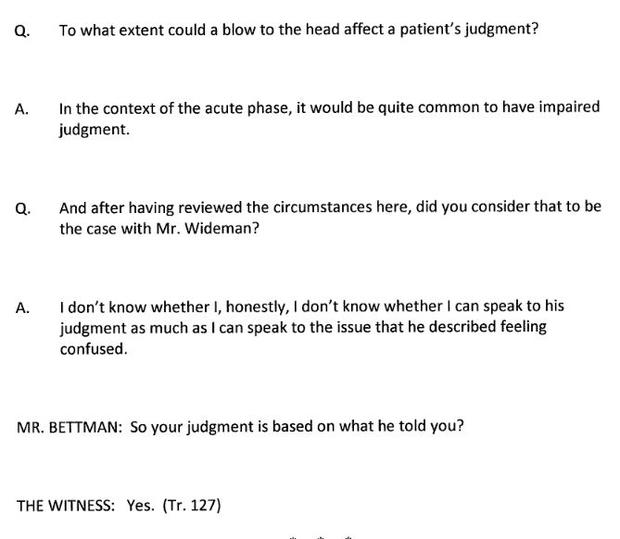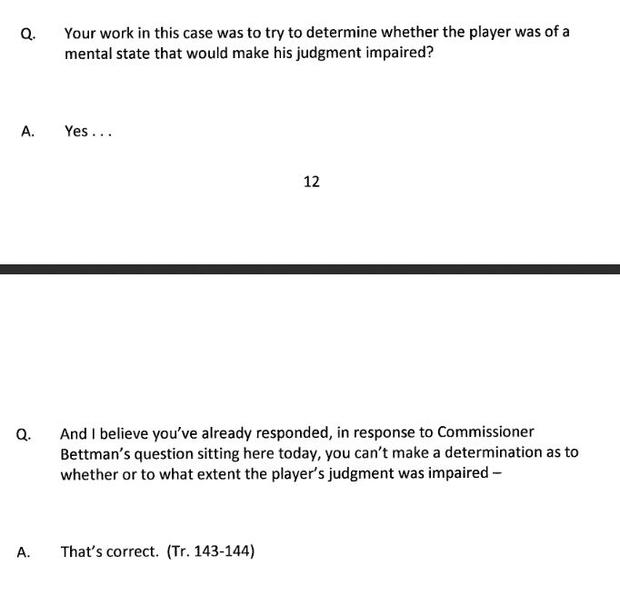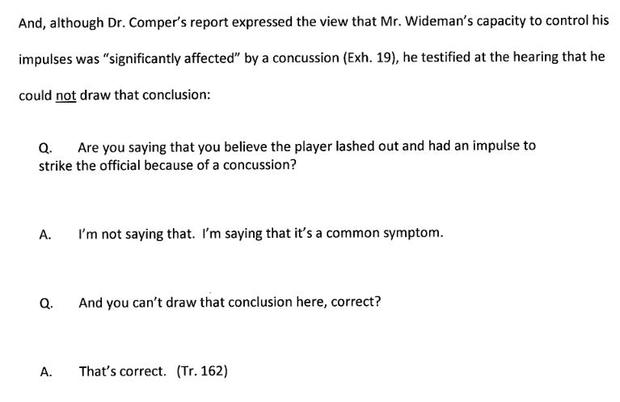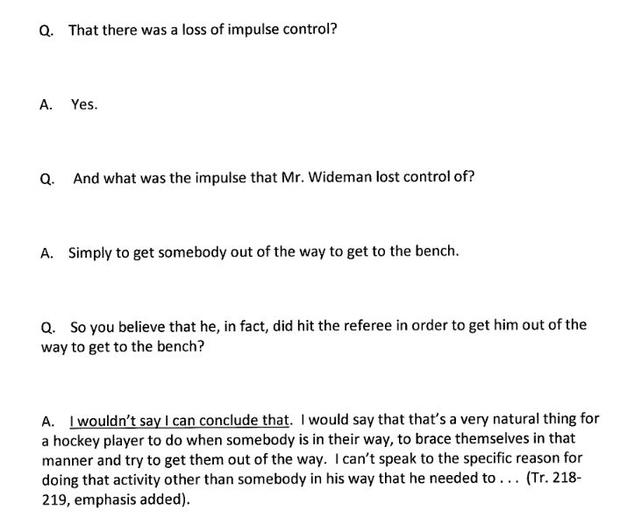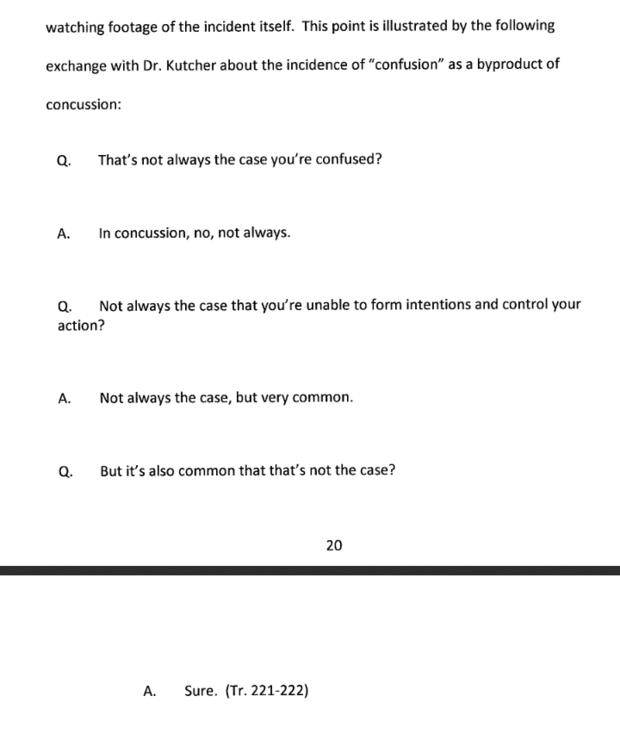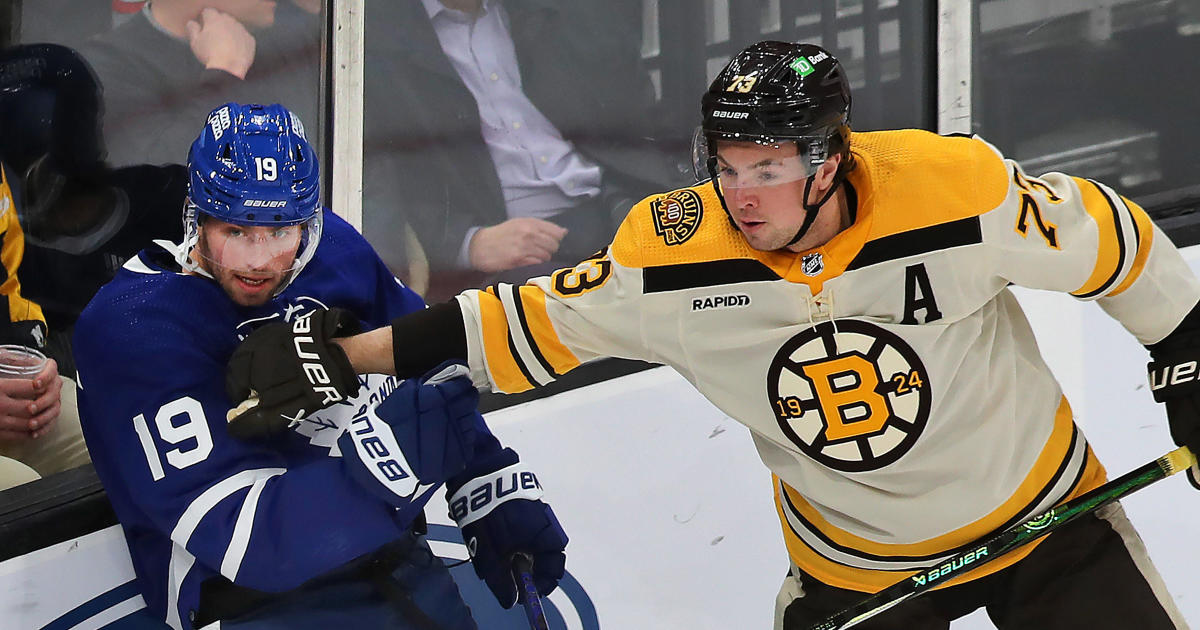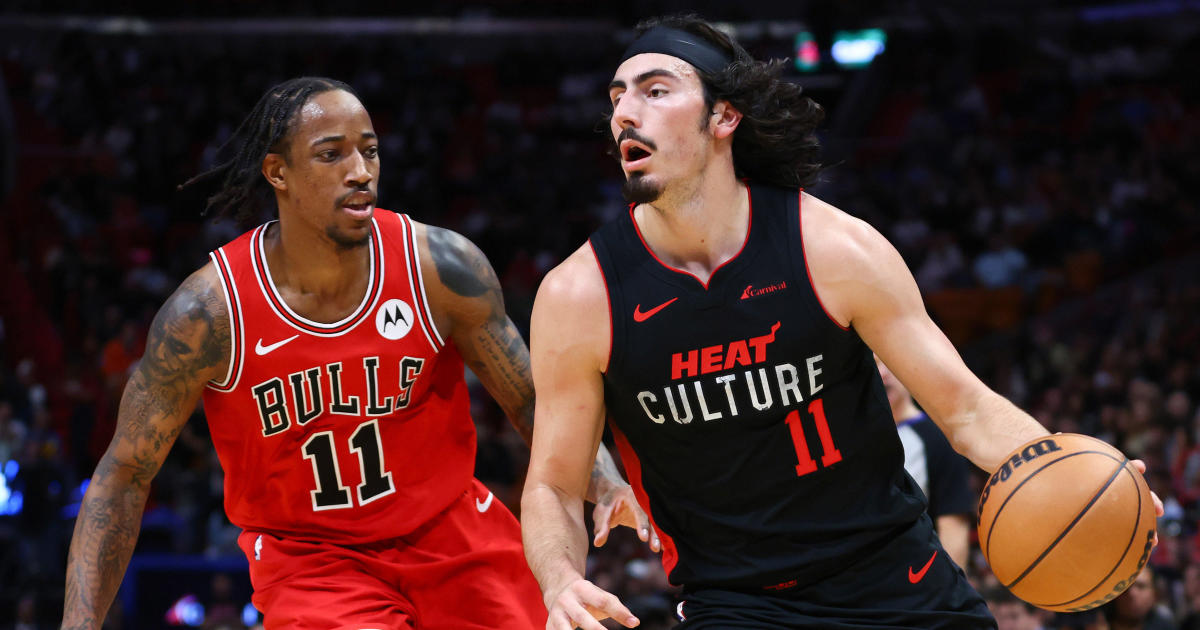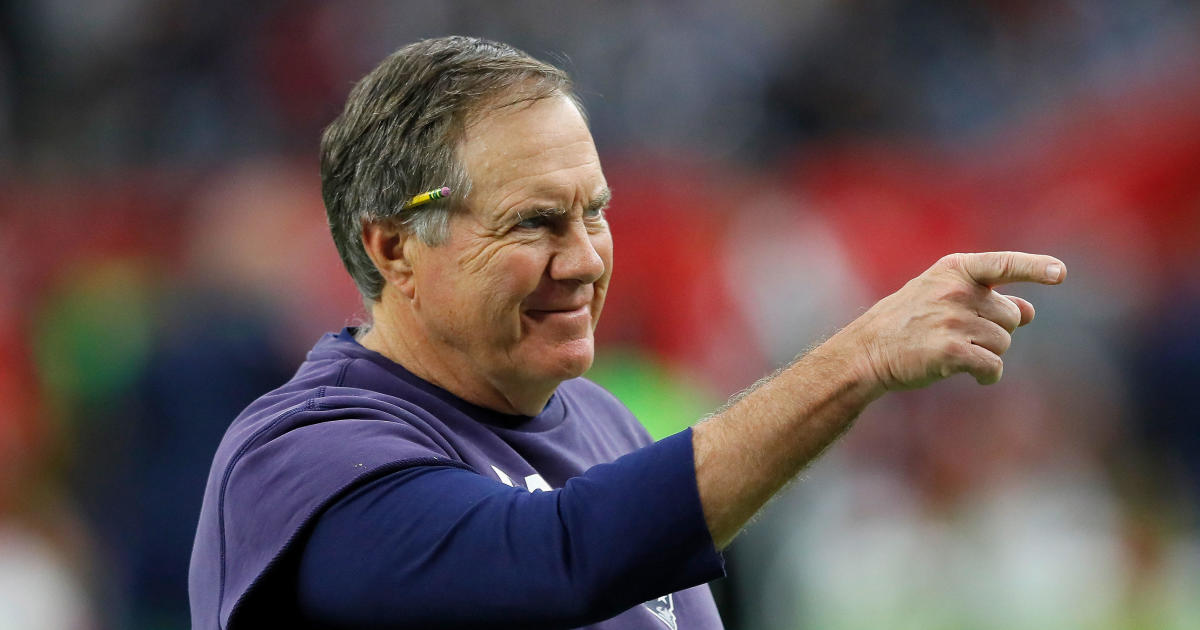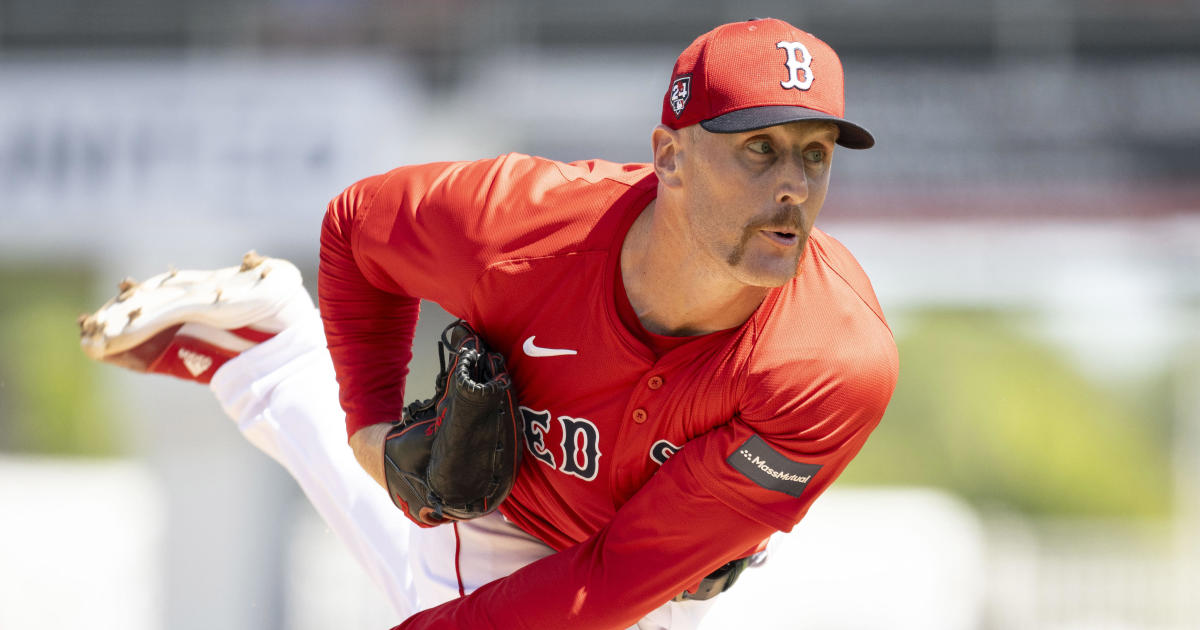Gary Bettman's Ruling Against Dennis Wideman Shows NHL's Near-Denial Of Impact Of Concussions
By Michael Hurley, CBS Boston
BOSTON (CBS) -- Until we can somehow obtain records of individuals' specific thought processes, the exercise of issuing suspensions and considering appeals for hits in hockey will always be a very speculative and imperfect process. And surely, in the case of Dennis Wideman, there was no way that the NHL commissioner could ever have gotten it completely right.
The incident itself was a bizarre one. Wideman was the recipient of a hit in the corner of the rink, a hit which caused his head to slam against the glass. Wideman stayed on his feet but was hunched over, and he made his way to the Calgary bench for a line change. Before getting there, he ended up on a crash course with a linesman, and for reasons unknown to us, Wideman violently hit the linesman from behind.
As a result, Wideman was suspended for 20 games. He appealed the ruling to Bettman, who upheld the decision on Wednesday night.
While the suspension itself has led and will certainly continue to lead to much debate, a suspension in this situation is fair. If Bettman didn't come down hard on the player, he might have had an officiating mutiny on his hands. And even if Wideman's intentions were never to hurt an unsuspecting linesman, and even if Wideman's judgment was impaired from a concussion suffered seconds earlier, it's not the worst thing for a commissioner to declare that such an act cannot be tolerated under any circumstances.
Yet if you read through Bettman's 22-page ruling to uphold the 20-game suspension, you'll see that the commissioner went above and beyond in his efforts to discredit two doctors who testified to the effects of a concussion. The commissioner also overlooked a potential brazen disregard for player safety by the Calgary Flames.
In short, you'll see a commissioner who seemed determined to not believe in the impact of concussions.
Mind you, there is a history here. Just last year Bettman stated that no evidence exists connecting concussions suffered from playing sports and developing CTE. He said this in 2015.
He's been in charge of a league that hasn't been on the cutting edge of properly treating concussions, and that shone through clearly when Wideman finished the game in question and said after the game that he was fine. (More on that later.)
I also recall being at a Marc Savard press conference after the Bruins star was sidelined after suffering a concussion following a seemingly innocuous hit against the boards in Colorado. Considering that minor contact and the injury came in the year following Savard's devastating concussion suffered at the hands of Matt Cooke (on a hit that went unpunished by the league), it stood to reason that Savard was not fully healthy when playing that following year. Yet I watched as a team doctor spoke into the microphone and said that the two weren't necessarily connected, and that Savard likely would have suffered the concussion from the Hunwick hit even if the concussion from the Cooke hit had never occurred. Ergo, the team and the league were off the hook in terms of putting a player in a dangerous situation health-wise.
Turns out, that's exactly the type of doctor the NHL wants around.
The type of doctor the NHL doesn't much care for was present in Wideman's appeal hearing, in the form of Dr. Jeffrey Kutcher, a neurologist, and Dr. Paul Comper, a neuropsychologist.
These doctors were there to testify to the effects of a concussion and the expected behavior from someone who just suffered a concussion.
And Bettman was there to tear them to shreds.
In Bettman's written ruling, he said, "I accept the Union's proffer of Dr. Comper as an expert in clinical neuropsychology and 'the effects on patients of concussions from a neuropsychological perspective. I also accept the Union's proffer of Dr. Kutcher as an expert in the cause, symptoms and effects of concussions."
His acceptance of any of the doctors' expertise and credentials essentially ends there.
To begin, Bettman underlined specific words from Dr. Comper's testimony to indicate that the doctor was not definitively stating that Wideman was suffering from specific symptoms of a concussion at the time. Anyone who knows anything about the science of the brain knows that it's not an area in which anyone can really speak with any great level of conclusiveness. "Knowledge" of these things to a 100 percent degree of certainty is essentially unattainable, especially when the patient is not examined by the doctor in person. And that is where Bettman pounced.
"In response to a question from NHLPA counsel as to whether 'motor skills' are affected in the acute phase of concussion, Dr. Comper carefully qualified his words, stating that '[t]hey can be and this is where you might see somebody exhibit a loss of balance, falling over." (Emphasis added by Bettman.)
Later, Bettman cited Dr. Comper's testimony which said Wideman's actions could be contributed to his confused state.
"Indeed, behavioural changes -- including aggressive and even combative behaviours -- are commonly reported behavioural hallmarks of head trauma," Dr. Comper testified. "It is my view that Mr. Wideman's usual capacity to exercise his judgment and to control his impulses was significantly affected by the head trauma that he experienced during the January 27, 2016 game for the period immediately after that incident."
Bettman reiterated that the lack of absolute certainty from Dr. Comper led to the commissioner determining that evidence presented was not clear or convincing.
"Dr. Comper testified at the hearing that he could not say whether Mr. Wideman's judgment had been impaired at the time of the incident," Bettman wrote.
Dr. Kutcher testified, "Somebody whose brain is not forming cohesive plans is unable to suppress inappropriate behaviors" and "I would say it would be impossible for him to intend to [intentionally hit the linesman] in the concussed state that he was in."
Bettman then reiterated that he accepts these two doctors as experts in their fields, but then went on to discredit their testimony. He also questioned their intentions and motives, given their previous work done for the players' union.
"[T]heir testimony was not simply about the diagnosis or symptomology of concussions. Rather, both were retained by the NHLPA (for whom each has performed services for many years) for the purpose of opining as to what [Wideman's] mental and/or physical state was at the time of the incident in question," Bettman wrote. "In order to do so, they relied on remote, brief interviews with Mr. Wideman conducted several days after the incident (at a time when he was well aware that he was the subject of an imminent supplementary discipline hearing) and their own review of the video footage."
He continued, again showing off his underlining skills: "The conclusions expressed by Dr. Comper and Dr. Kutcher were not based on what Mr. Wideman's capacity actually was at the time in question but about what his condition might have been."
OK, you may be saying that's a fair critique. Why are we not hearing directly from the Calgary Flames' team doctors and trainers? After all, they were the ones who had the opportunity to examine Wideman in the moment, right?
Well, that's where things take a dark turn for the NHL, and quickly.
Buried in a footnote on page 18 (thanks to the NFL, we know to always read the footnotes) was this nugget from Bettman: "I note that Mr. Wideman gave a post-game interview in which he essentially denied having been 'woozy.' Mr. Wideman testified at the hearing that he had been instructed to give a misleading answer if asked about his condition and that he followed that instruction. During the hearing, the NHLPA introduced evidence that the Calgary concussion spotter log shows a notation of 'motor incoordination/balance' problems and that the Player should have been removed from the game and evaluated pursuant to the NHL-NHLPA concussion protocol. I make no finding at this time on whether the Club violated the concussion protocol, a question that need not be decided here and that I reserve for another day."
Let's borrow Bettman's underlining skills for a moment.
"Mr. Wideman testified at the hearing that he had been instructed to give a misleading answer if asked about his condition and that he followed that instruction."
"The Player should have been removed from the game and evaluated pursuant to the NHL-NHLPA concussion protocol. I make no finding at this time on whether the Club violated the concussion protocol."
Much like Jeff Fisher and the Rams leaving a stumbling Case Keenum out on the field to take another hit last November, the Calgary Flames might have not only let a player stay in the game after suffering a concussion but then instructed him to tell the media that no such concussion existed. And now, the NHL is attacking the impact that the concussion might have had on Wideman's decision-making.
That's a frightening scenario.
If you want to read Bettman's entire assault on the credibility of the testimony of the two doctors, you certainly can do so on the NHL's official website. I'll also include some clips from the hearing that show the tenor of the questioning of the two doctors at the bottom of this story. The questioning from the NHL's side was very clearly always intended to get a desired result instead of actually finding fact or accepting any of the testimony as relevant.
Again, a few points should be reiterated. For one, Wideman hit a linesman, not a referee, so the idea of the player (with a perfectly clean record, mind you) assaulting an official over a perceived injustice on the ice doesn't fit in this scenario. A player simply would not attack a linesman over, say, a bad offsides call made earlier in the game. That doesn't excuse Wideman by any means, but it should remove the idea that he was carrying out some sort of vendetta on the official in question.
Secondly, a serious suspension is certainly appropriate in this instance. Even if Wideman's cognitive abilities were impaired, this type of act simply cannot happen. The officials would likely revolt against the league -- and they'd be right to -- if the player wasn't disciplined harshly. Certainly, a court of law would likely not excuse a defendant if that person had suffered a head injury just before committing a crime.
In this case, punishment could have been doled out without necessarily demonizing Wideman and the doctors.
A suspension could have been issued and upheld without the commissioner of the league going to such great lengths to diminish the impact of a concussion.
A suspension could have been levied without Bettman playing doctor, or god, or whatever it is that has him convinced that he knows beyond a doubt what Wideman was thinking in that most-bizarre scenario.
(Side note: It also could have been made without publicizing Wideman's private text message to a teammate. If Ted Wells and Richie Incognito taught us anything, it's that athletes should do everything in their power to keep their private messages private. Once they're out there, every person on the planet can infer different meanings from different messages and inside jokes. And if you insult the media, you know that they're going to get all hot and bothered and write all sorts of scathing columns against you, even though the comment was hardly an inflammatory one. Never let your private messages go public. Tom Brady had it right.)
Essentially, Bettman wants conclusions in a field where conclusions can't be made. There's no process log available for the brain functions of Wideman that night, and there's no doctor in the world who can state definitively what Wideman's exact intentions were. Yet there are doctors who can speak to the symptoms and behavior of someone who just suffered a concussion. And then there is the NHL, led by Bettman, who does not want to believe even one word of it.
It's undeniably a tricky situation, but it's one made much more complex by the troubling response by Bettman.
You can email Michael Hurley or find him on Twitter @michaelFhurley.
